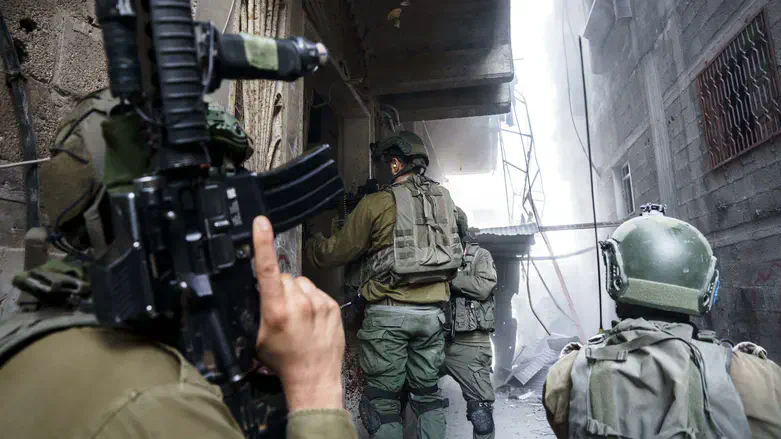
While the State of Israel is engaged in a comprehensive security battle - facing the Iranian nuclear threat and Hamas terrorism in Gaza - the fighters of the Rotem Battalion of the Givati Brigade continue their relentless combat inside one of the most difficult terror strongholds: the Jabalia refugee camp.
In a special interview, the battalion commander, Lieutenant Colonel A, describes the intense fighting routine, the dangers in built-up and underground areas, the frustration from being so close yet distant from the hostages, and the determination to bring them home.
"We returned to Jabalia because we understood how important it is," he begins. "This is the place where we first set foot in the early stages of the fighting. We were there, we left, and we knew we had to return - to strike the enemy to the very end. Every night we continue missions on the ground, face to face, or in the tunnels."
According to him, Hamas has moved to operate mainly from underground tunnels, and it is precisely there that the risks are greatest. "We are facing new methods of enemy action - explosives, anti-tank weapons, ambushes. But we also have advantages: the quality of our fighters, technology, precise intelligence - all of which allow us to strike the enemy with strength."
When asked why ground fighting in booby-trapped buildings is even necessary, he sharply responded: "We carefully choose the entry points - only when it contributes to the decision. We conduct all possible preliminary checks. Yes, it's dangerous, but this is the way to achieve what is needed - to bring the hostages home and defeat Hamas."
Lieutenant Colonel A confirms that the fight in Hamas' tunnels is critical: "If we don't destroy the underground infrastructure, we won't be able to ensure peace for the next generation. We are doing this systematically and thoroughly. It takes time, but this is the war - and we have no intention of stopping."
Regarding the ongoing battle routine and maintaining morale, he says: "My soldiers wake up every morning and know why they are here - because of the hostages, because of the fallen. I see it in their eyes. They don't ask why, they simply fight. I was a commander during Operation Protective Edge, where we fought for three weeks. Here - it's been a year and a half. It's an entirely different generation."
He addresses the frustration of the small distance between the battlefield and the location where our kidnapped brothers are being held: "Yes, it's frustrating. But if I let my soldiers run, they would already be there. I’m the one who has to stop them. We act responsibly, but with strength - and every terrorist who raises his head - his time is limited."
In conclusion, Lieutenant Colonel A also addresses the Iranian front. "The families of all of us live under the same threat - even mine. But we are here - so that they have nothing to fear. This is a battle for the future of the state, and we will win."

